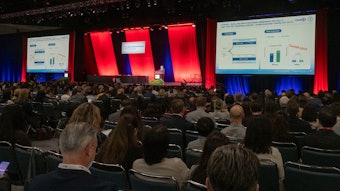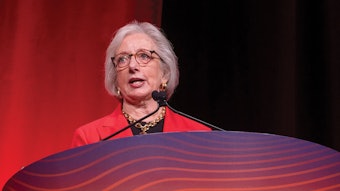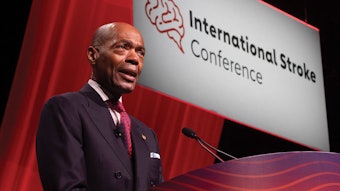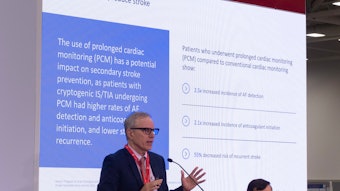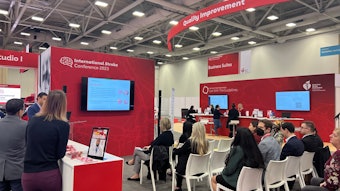Fast and Furious: Tackling acute stroke challenges
This pre-conference program features debates on hot-button topics, such as the utility of mobile stroke units and the viability of thrombectomy for large core infarcts.

Pre-Conference Symposium
Fast and Furious | Stroke in the Real World: Addressing Challenges in Acute Stroke Management
8:30 a.m.-5 p.m. (PST) | Tuesday, Feb. 4
Room 151
The critical role of first responders and emergency physicians in the early identification and treatment of stroke significantly impacts patient recovery, making it imperative that the response be “Fast and Furious,” a pre-conference symposium highlight of this year’s International Stroke Conference.
"Fast and Furious: Stroke in the Real World" promises to deliver an intensive, full-day exploration of the latest advancements and challenges in emergency acute stroke management. The symposium, which will be held on Tuesday, Feb. 4, from 8:30 a.m. to 5 p.m. PST in Room 151, is a must-attend for health care professionals seeking to stay ahead in this rapidly evolving field.
Co-chaired by Mollie McDermott, MD, MS, and Theodore Wein, MD, FRCPC, the symposium’s agenda is packed with cutting-edge discussions, debates and case-based learning. It addresses the pre-hospital and acute aspects of stroke care, focusing on real-world applications of new research and innovations. The theme, "Fast and Furious," reflects the dual imperatives of speed and precision in managing stroke patients.
Symposium stand-out
According to Wein, an assistant professor of neurology and neurosurgery at McGill University, the symposium is designed to tackle the most urgent and transformative issues in stroke care.
“Advances in ICH treatment, the need for code ICH and innovations like mobile stroke units represent some of the critical developments in the past year,” Wein explained. “The evolving landscape of acute stroke management with advances in thrombectomy and thrombolysis underscores the urgency of bringing these advancements into practice to improve outcomes for acute stroke patients.”
The program features debates on hot-button topics, such as the utility of mobile stroke units and the viability of thrombectomy for large core infarcts. These discussions will provide attendees with valuable insights into the logistical, financial and clinical considerations surrounding these innovations.
Real-world relevance
The symposium’s content is rooted in practical scenarios that stroke clinicians encounter daily. Wein emphasized the importance of actionable insights.
“This symposium caters to real-world challenges by bringing the latest literature into community practice as soon as possible,” he said. “We address the role of prehospital care, emergency department protocols and acute stroke team responses to help maximize patient outcomes.”
Sessions like "Stroke Symptoms in the Ambulance" and "First Blood: Time Is Brain in ICH Too!" highlight the critical role of first responders and emergency physicians in reducing treatment delays. Meanwhile, advanced topics such as the implications of the ENRICH trial and the use of Andexanet alfa in ICH management aim to equip acute care teams with the latest tools and strategies.
Anticipated takeaways
Wein said he hopes attendees will leave the symposium equipped to immediately apply new knowledge in their professional settings.
“Participants will review the latest research with the very experts who conducted the trials,” he said. “They’ll gain insights into emerging treatments like extended thrombolysis windows, expansion of inclusion criteria for thrombectomy, and innovations in imaging interpretation. These updates empower clinicians to make faster, evidence-based decisions, ensuring better patient outcomes.”
A collaborative environment
The symposium fosters multidisciplinary collaboration through interactive panels and debates, bridging the gap between emergency response, acute care, and long-term recovery. It also provides an intimate setting for attendees to engage directly with global leaders in stroke care.
“This is an opportunity not only to learn but also to build connections with experts and peers,” Wein said. “The collaboration and knowledge sharing here can transform practices and improve patient care worldwide.”
With its focus on actionable insights, cutting-edge research and collaborative learning, the "Fast and Furious" symposium is poised to be one of the most impactful sessions at this year’s International Stroke Conference.
For more pre-conference programming information, see the Online Program Planner.

